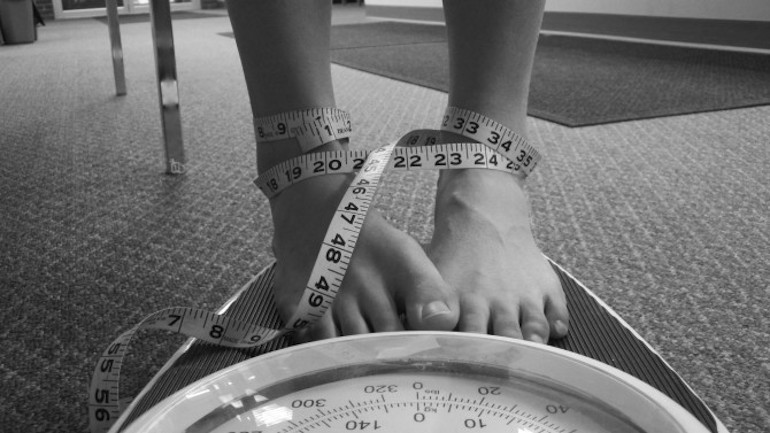As I’ve gotten older, I’ve increasingly realized how many times people have dictated — whether subliminally or blatantly — that I should or shouldn’t be eating something. Whether I was battling my own insecurities with food or genuinely too full to eat anymore, other people have always seemed to feel entitled to comment on my eating habits.
One time in high school, when I was dealing with the worst cramps ever (ladies, you know what I’m talking about), I decided to just have a cup of yogurt during lunch time so that I wouldn’t get sick afterward. With a concerned look on her face, one of my teachers asked me if I was okay and suggested that I eat more. Though I’m sure she had good intentions, it made me wonder at what point someone else’s input goes too far.

Photo courtesy of Alex Baker Photography
This can fall on either side of the spectrum: one person may jokingly call you fat and totally mess with your head (still bitter), while another may shame your healthy choices and proceed to dump another scoop of mac and cheese on your plate (been there before).
What a lot of people don’t realize is that these conflicting pressures aren’t as simple as “eat more” or “eat less.” These seemingly innocent comments actually vary depending on people’s backgrounds and have profound impacts on the eating disorders prevalent in a given group.
Such messages — otherwise known as “cultural cues” — may appear to be harmless, especially if someone grows up hearing them day-to-day, but they can cause and exacerbate eating disorder symptoms. Just as non-verbal cues carry different meanings in different countries, eating cues also widely vary.
We often joke about our grandparents who say, “Back in my day, I had to walk uphill for miles to find the nearest produce stand.” And I’m sure we’ve all had that pesky friend or family member who convinces us to finish our second serving, because a starving child somewhere would do anything to have it. Obviously, we should all be aware of the pervasiveness of poverty in our society and thoughtfully use the resources provided to us. But when awareness turns into guilt, more problems arise.

Photo courtesy of nfllf.com
For example, in Latino households, it’s common to hear things like, “You need to eat everything on your plate!” This, however, could soon lead to dangerous binge eating. Finishing a second serving could quickly turn into a third or fourth, which often spirals out of control. Even if a parent views feeding his or her child as an act of love, where is the love in pushing people beyond their level of comfort (physically or emotionally)?
A report conducted by Stanford found that American Indians and Alaskan Natives — who generally tend to turn to disordered eating as a result of social and cultural stresses — were far more likely to use laxatives to control their weight than Caucasians. These populations, however, are usually left out of broader conversations about eating disorders. And they’re not the only ones.
Men are typically pegged as only caring about being as chock-full of testosterone as possible and getting ripped at the gym. Contrary to this assumption, the facade of staying fit can easily serve as a mask for deeper insecurities. N.A.M.E.D. (the National Association for Males with Eating Disorders) — though many of us may not have even known it exists — states that one in four individuals with an eating disorder is male.
When we picture someone with an eating disorder, I’m guessing most of us imagine a frail, borderline skeletal white woman. As a white woman myself, I know I’m guilty of this conceptualization. But, as we can see, eating disorders are not limited to one race, ethnicity, or gender.

Photo courtesy of espn.go.com
In order to spread this truth, we need to open up about our struggles and recognize that not everyone’s story is the same. Everyone faces cultural pressures in one way or another, but some cries for help are being stifled due to our skewed societal expectations. We need to understand that anyone — regardless of background — can fall into the trap of disordered eating.
Eating disorders aren’t strictly a white woman’s issue; they’re a universal problem that can only be solved by supporting those around us. At the end of the day, we all just want to eat, drink, and be merry. No matter where we grew up or what kind of food is on our plates, let’s grow in sensitivity and stand for those who are suffering when they can’t do so themselves. Speaking up is the first step in crushing eating disorders for good.


